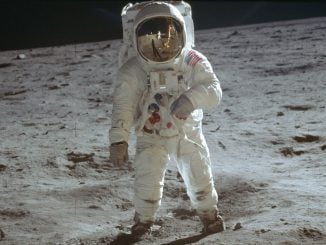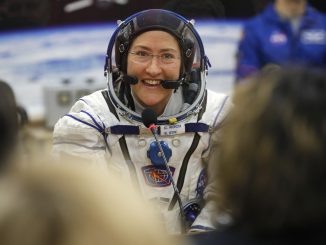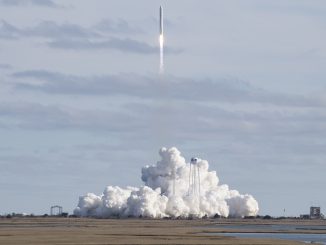
CAPE CANAVERAL, Fla. — The world’s first all-female spacewalking team made history high above Earth on Friday, replacing a broken part of the International Space Station’s power grid.
As NASA astronauts Christina Koch and Jessica Meir successfully completed the job with wrenches, screwdrivers and power-grip tools, it marked the first time in a half-century of spacewalking that men weren’t part of the action. They insisted they were just doing their job after years of training, following in the footsteps of women who paved the way.
America’s first female spacewalker from 35 years ago, Kathy Sullivan, was delighted. She said it’s good to finally have enough women in the astronaut corps and trained for spacewalking for this to happen.
“We’ve got qualified women running the control, running space centers, commanding the station, commanding spaceships and doing spacewalks,” Sullivan told The Associated Press earlier this week. “And golly, gee whiz, every now and then there’s more than one woman in the same place.”
President Donald Trump put in a congratulatory call from the White House to mark “this historic event … truly historic.”
“What you do is incredible. You’re very brave people,” Trump told them as they wrapped up their spacewalk.
Replied Meir: “We don’t want to take too much credit because there have been many others — female spacewalkers — before us. This is just the first time that there have been two women outside at the same time … For us, this is really just us doing our job.”
Meir and Koch are still uplifted by all the excitement down on Earth.
International Space Station resident Jessica Meir said Monday that when she floated outside last week, she wasn’t thinking about whether she was going out with a man or woman because everyone is held to the same standard. Nonetheless, she said it was extra special being accompanied by Christina Koch, a close friend.
Koch said knowing so many were so excited about two women spacewalking together “just added to the moment.” It was “uplifting,” she said, to have the opportunity to inspire future explorers.
Koch is a native of Jacksonville, N.C. and studied at N.C. State where she received degrees in physics and electrical engineering. She is also an alumnus of the N.C. School of Science and Mathematics in Durham.
Koch will spend nearly a year at the International Space Station, setting a record for women, remaining on board for about 11 months, until February — approaching but not quite breaking Scott Kelly’s 340-day U.S. record.
Koch knew before launching last month that her flight might stretch into 2020 and sought advice from Kelly as well as retired astronaut Peggy Whitson, the current record-holder for female space fliers.
Koch will break Whitson’s 288-day record for the longest single spaceflight by a woman at the end of December.
“I hope that me being up here and giving my best every day is a way for me to say thank you to people like her,” Koch said in a NASA interview broadcast in April.
Koch and Meir don’t know when they might go out together again, perhaps in coming weeks or months for more battery work.
“Hopefully it will become commonplace and it won’t even necessarily be something that’s a big deal down the road,” Koch said.
Until Friday, every spacewalk since the first in 1965 involved at least one man.
NASA Administrator Jim Bridenstine, meanwhile, hailed the “unmanned” spacewalk and noted the social media attention was tremendous.
“Wait until we land the first woman on the south pole of the moon,” Bridenstine said during the opening of the International Astronautical Congress in Washington.
NASA is shooting for 2024 for the first lunar landing by astronauts since 1972.
During a news conference from orbit, Koch said she’s pleased that some outdated phrases — manned spaceflight, unmanned rockets — are being replaced.
“Even though that language is meant to represent all of humanity, it does conjure up images of men being the main participants,” she told reporters. “So I’ve been happy to see instances of people, human, humankind, things like that being introduced. So I just continue to use that language myself and to encourage its use in others.”



